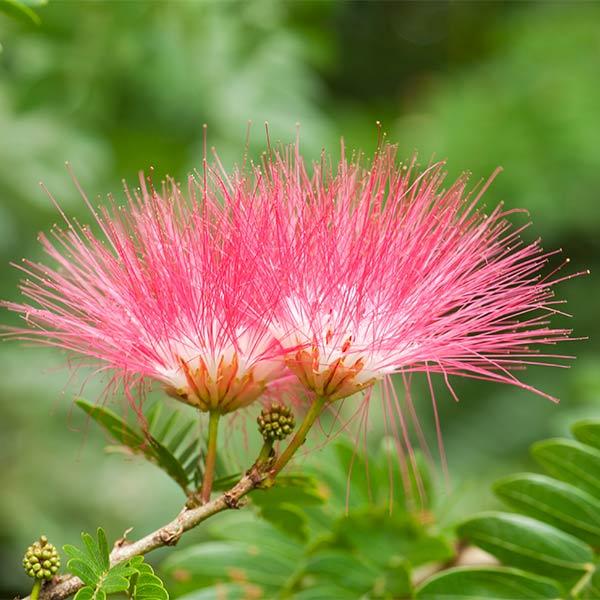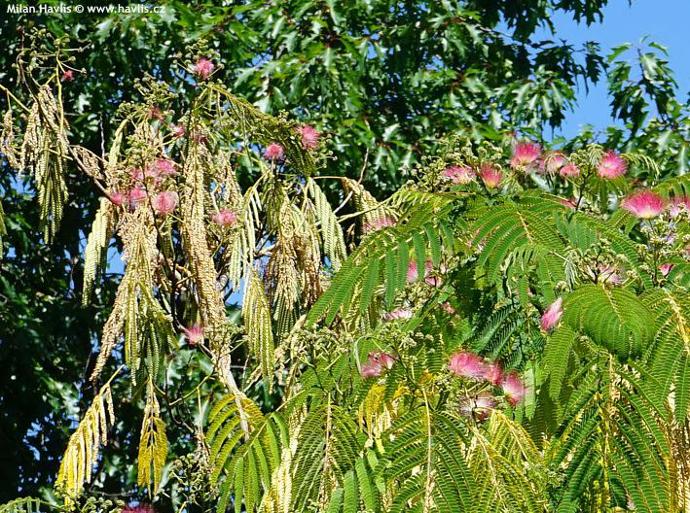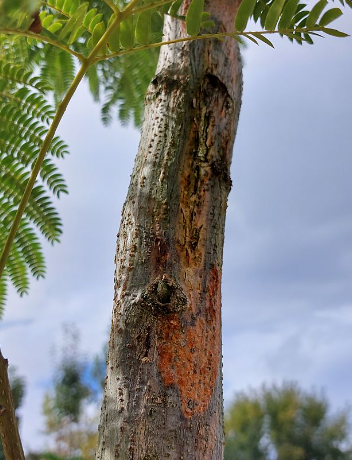Silk Tree Plant
Albizia julibrissin, commonly known as Silk Tree, is a fast-growing deciduous tree that can reach 20-40 ft, is hardy in USDA zones 6-9, prefers well-drained loamy soil, partial shade, moderate moisture, and is not edible but has medicinal properties

Habit
Tree
Height
6-12 m
Growth
Fast
Soil
Well-drained
Shade
Full sun, partial shade
Moisture
Medium
Edible
No
Medicinal
Yes
Origin
Asia, Middle East
Climatic Condition
Subtropical, Tropical
Temperature (°)
20-35°C
Humidity (%)
50-75%
Potting media
Loamy, peat
Fertilizers
Balanced NPK
Watering
Moderate
Plant Weight
500-1000 g
Flowering Time
Summer
Soil Ph level
6.0 - 7.0
Water Ph level
6.0 - 7.0
Soil EC
1-2 dS/m
Yield Per Plant
Ornamental
NPK ratio
10:10:10
life Span
Perennial
Health Benefits
Ornamental, medicinal
Suggested Grow Media or Potting Mix ?
50% loam, 25% compost, 25% sand
Suggested Fertigation/Fertilizers
Fertilize every 4 weeks with a balanced fertilizer.
Common Diseases and Remedies
Fusarium Wilt
Yellowing, wilting leaves, often on one side of the plant, followed by wilting and death of affected branches.
Improve soil drainage, apply beneficial microbes like Trichoderma spp., solarize soil.
HEALTH BENEFITS
· Used in traditional medicine for anxiety, depression, and stress relief.
· Contains antioxidant and anti-inflammatory compounds that support skin and immune health.

